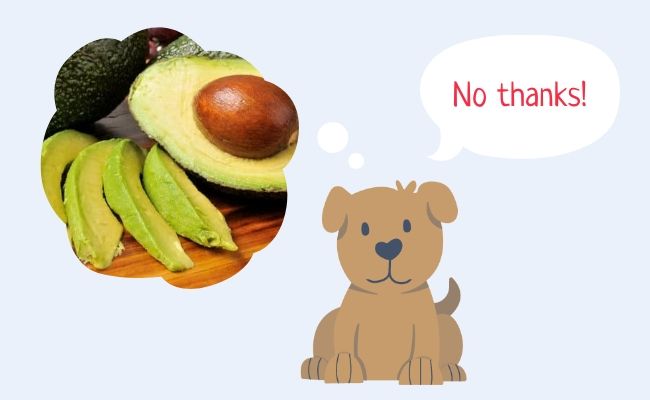Dogs can’t eat avocado because it can be toxic to them. Avocado contains a substance called persin that can cause vomiting and diarrhea in dogs.
Avocado is a popular and delicious fruit enjoyed by many humans, but did you know that it can be harmful to dogs? Although avocado offers various health benefits to humans, it can be toxic to our furry friends. The reason behind this is a substance called persin found in avocados, which can cause digestive issues in dogs.
Consuming avocado can lead to vomiting, diarrhea, and other gastrointestinal problems in dogs. As responsible pet owners, it is crucial to be aware of which foods are safe to feed our canine companions. We will explore why dogs can’t eat avocado and the potential risks associated with it.
Avocado And Its Potential Health Risks For Dogs
Avocado can be toxic to dogs due to specific chemicals present in it. Consumption of avocado by dogs can lead to potential health risks and symptoms. Some dogs may experience gastrointestinal disturbances such as vomiting and diarrhea after ingesting avocado.
In certain cases, it can even cause pancreatitis. Other possible symptoms include lethargy, difficulty breathing, and abdominal discomfort. It is crucial for dog owners to be aware of the potential dangers associated with avocados and refrain from feeding them to their pets.
If a dog accidentally consumes avocado or shows any of the aforementioned symptoms, it is recommended to seek veterinary assistance immediately. Overall, understanding the toxicity of avocado to dogs is vital for their well-being.
Avocado-Related Digestive Problems In Dogs
Avocado-related digestive problems in dogs can stem from the difficulty they face in digesting this fruit. Consuming avocado can put dogs at risk for pancreatitis, a condition that causes inflammation of the pancreas. Additionally, dogs may experience potential gastrointestinal issues after eating avocado.
These effects occur because avocados contain a substance called persin, which is toxic to dogs. Persin can lead to vomiting, diarrhea, and even more serious symptoms in some cases. It is important for pet owners to be aware of the potential risks associated with feeding avocado to dogs and to avoid giving it to them to prevent any digestive complications.
It is always best to consult with a veterinarian to ensure the safety and well-being of our furry friends.
Alternative Healthy Snacks For Your Dog
Avocados may be a trendy superfood for humans, but they are a big no-no for dogs. The fruit contains a toxin called persin, which can cause vomiting and diarrhea in our furry friends. So, if you’re looking for alternative healthy snacks for your dog, there are plenty of safe and nutritious options out there.
Many fruits and vegetables like apples, carrots, and blueberries are not only delicious but also packed with vitamins and antioxidants that can boost your pup’s health. You can also try making homemade dog-friendly snacks using ingredients like pumpkin, sweet potatoes, and oats.
Just be sure to avoid using any ingredients that are toxic to dogs, such as chocolate or onions. With some creativity and a little bit of research, you can provide your canine companion with tasty and wholesome treats that they will love.

Credit: www.borrowmydoggy.com
Conclusion
It is clear that dogs should not be fed avocados due to potential health risks. Avocados contain a compound called persin, which can be toxic to dogs and may lead to stomach upset, vomiting, and even pancreatitis. Additionally, the high fat content in avocados can be harmful to dogs and may lead to obesity and other related health problems.
While avocados are safe for humans to consume in moderation, it is crucial to remember that dogs have different digestive systems and nutritional needs. It is always best to consult with a veterinarian before introducing any new food into your dog’s diet.
By being cautious and aware of the potential risks, you can ensure the health and well-being of your beloved canine companion.
